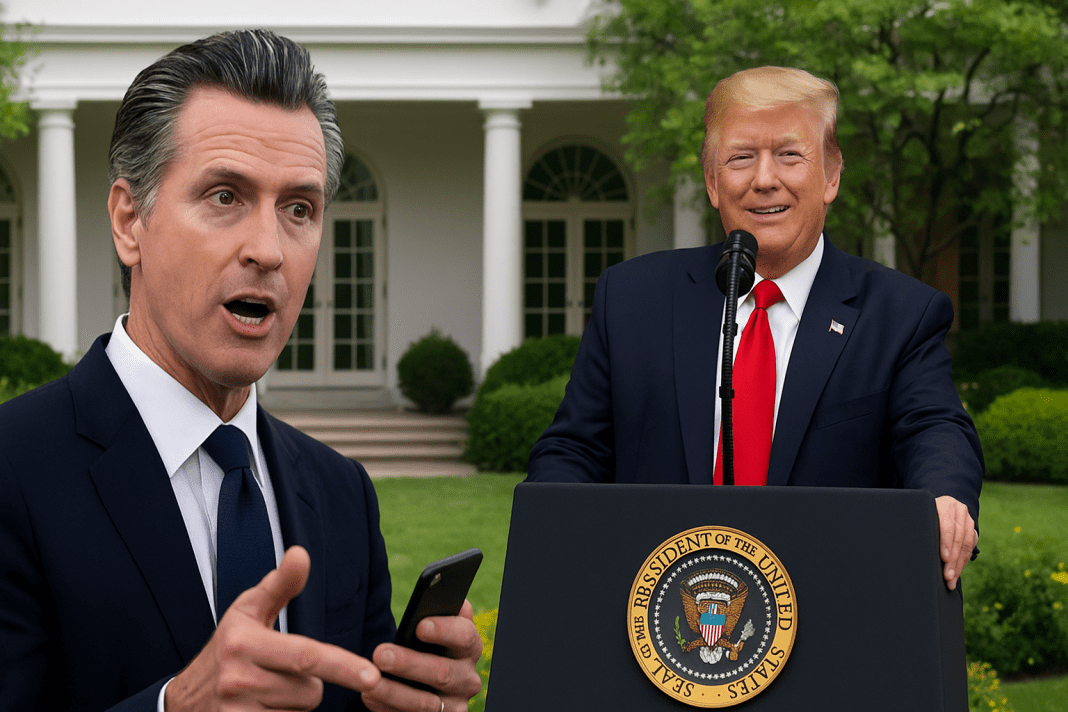A political storm erupted after a freshly renovated section of the White House Rose Garden was unveiled with a dinner event.
Predator Patio Controversy
The area, repaved and redesigned, was presented as a new social and political gathering spot. But what was meant to be a show of strength quickly turned into a war of words online.
The new space was mocked and renamed the “Predator Patio” by critics. Social media lit up when posts suggested that admission to the event was as exclusive as being “on the Epstein list.” The sharp nickname spread quickly across platforms, sparking debates about both the event and its guests.
Welcome to Predator Patio! Admission? Just prove you’re on the Epstein List! pic.twitter.com/dUFrvnpfRF
— Governor Newsom Press Office (@GovPressOffice) September 7, 2025
This move was not simply a joke; it was a calculated response aimed at drawing attention to deeper issues. The posts questioned the decision to host a luxury dinner while millions of ordinary Americans are facing hardships. The contrast between everyday struggles and the glamour of the dinner table became the center of attention.
Heated Accusations on Social Media
The criticisms did not stop with the name “Predator Patio.” Strong words were also directed toward the guests who attended the event. One high-profile lawmaker, known for supporting key economic and social legislation, was compared to Marie Antoinette, the infamous queen remembered for her lavish lifestyle while citizens suffered.
Gavin Newsom rivalry with Trump gains spotlight as ex-wife’s past with Trump Jr draws notice
This comparison carried weight because the same lawmaker had played a major role in passing a bill described as “One Big Beautiful Bill.” Reports suggest this bill could strip health care access from 17 million Americans. It also plans to cut $300 billion from food assistance programs over the next decade.
The social media posts drew a vivid picture: while children may lose access to food support and families struggle with medical costs, elite politicians were pictured toasting in celebration at the Rose Garden. The criticisms pointed to a widening gap between political leaders and the public they serve.
Adding fuel to the controversy, reminders surfaced of past incidents where leaders themselves were accused of behaving like royalty. During the pandemic, one figure was widely criticized for attending a private fine-dining event while at the same time urging citizens to maintain social distancing rules. The comparison was revived to emphasize the sense of hypocrisy many feel when leaders set one standard for themselves and another for the people.
Economic Struggles Under the Spotlight
The heated exchange came at a sensitive moment, as the nation’s economic situation remains under intense scrutiny. Official figures released just hours before the Rose Garden dinner showed disappointing results. Only 22,000 new jobs were created in August, far below the expected 75,000.
Adding to the concern, earlier data for June was revised downward, showing a net loss of 13,000 jobs. These numbers painted a darker picture of the economy than previously thought. The unemployment rate also rose to 4.3 percent, the highest level since late 2021.
Tensions grew further after it was revealed that the administration had dismissed its chief statistician in August. The removal was justified by claims that economic data was being manipulated for political purposes. However, even after this change, the numbers released were bleak.
Critics quickly linked the lavish dinner at the Rose Garden with the gloomy job statistics. Social media posts described the celebration as a “club” for elites who were seen enjoying luxury while the economy spiraled. References to “Diet Coke toasts” and the exclusivity of the “Rose Garden Club” spread online, amplifying the perception of a leadership disconnected from the reality of everyday Americans.
The guest list for the dinner included senior members of government, lawmakers, and key officials. The event was introduced as a gathering of people who could “bring peace and success to the country.” But for many, the image of powerful figures enjoying a grand meal during a time of economic struggle only deepened the sense of anger.
The clash over the Predator Patio, the controversial bill, and the economic figures combined to create a perfect storm. What began as a simple dinner unveiling turned into a major flashpoint, exposing deep divisions and raising sharp questions about leadership, responsibility, and priorities.





